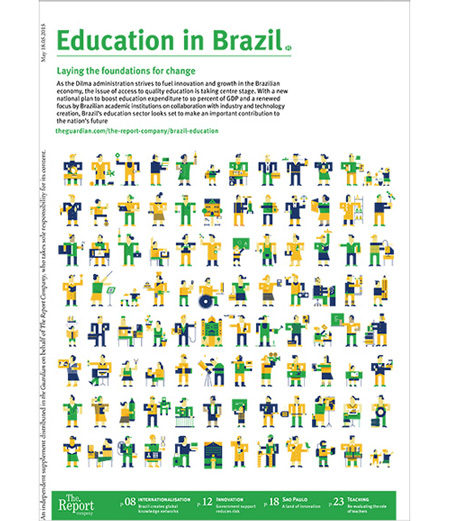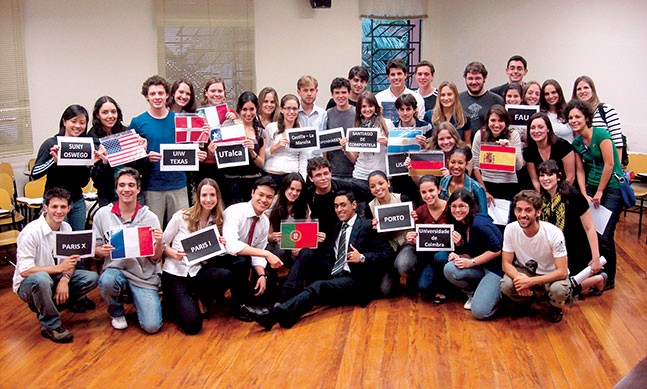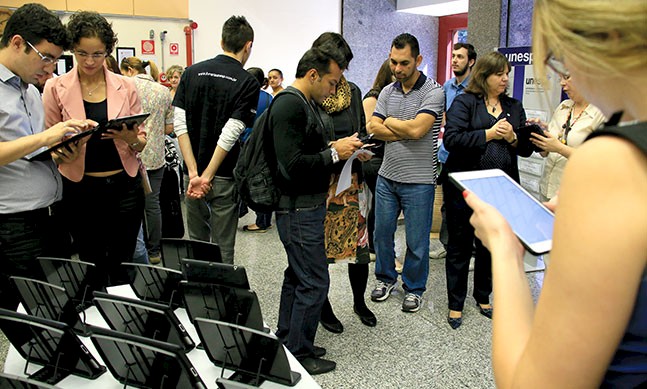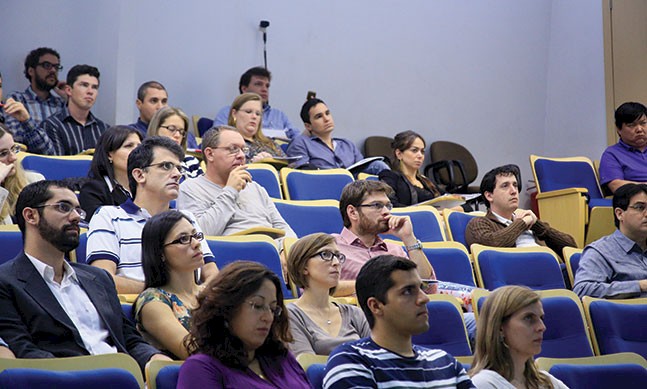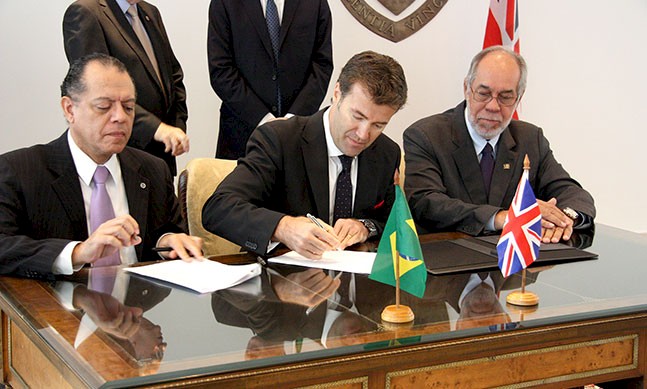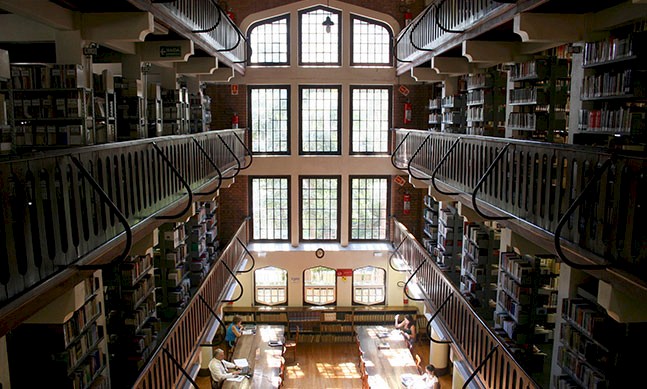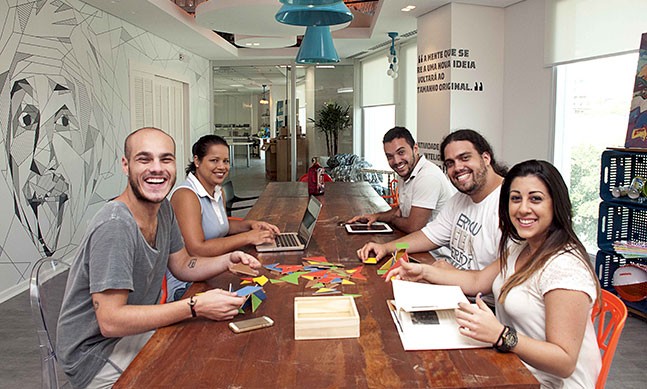President Dilma Rousseff's former education minister Fernando Haddad became the 61st mayor of Sao Paulo on 1st January 2013. The following June, the city was plunged into crisis as thousands took to the streets to protest rising bus fares and the government's perceived encroachment on civil liberties. On 21st March 2014, Haddad outlined to The Report Company his focus on addressing the issues that caused the obstructions in the administration's dialogue with the people of Sao Paulo.
The Report Company: Why do you think the people chose you as mayor and what do they expect from you?
Fernando Haddad: I have a background in management, starting during Marta Suplicy’s administration in Sao Paulo. Then I took on the role of minister of education during the Lula and Dilma administrations, where I think we left a great legacy, conducting some very profound reforms, the benefits of which we are now starting to reap.
During the 2012 mayoral campaign, we showed that the municipal government had to update its agenda, and focus in particular on the quality of public services and improving their efficiency. Our pledge was that although people's lives had improved within their own homes, we had to start improving the lives of citizens outside their homes. I think the people understood our campaign well, so I think that is what they are expecting.
TRC: Your first year was atypical, with the popular protests bringing many challenges. Were you surprised by their scale?
FH: June was a surprise. The movement was in line with what we had discussed during the campaign in 2012, but we obviously could not have brought about the solutions just four months after we had taken office. We were surprised at how quickly the demands that we had been talking about were taken to the streets.
TRC: What role do you see partnerships both with government and the private sector playing in helping you to meet your goals for Sao Paulo?
FH: In Sao Paulo, we are trying to coordinate our actions with both the state and the federal governments. I have been criticised for seeking synergies with the state government, but we have signed an unprecedented number of agreements. Although the municipal and state administrations are in the hands of opposing parties, we are indeed seeking alignment in areas such as housing, culture and urban mobility. There is also coordination with the federal government through the Accelerated Growth Programme (PAC) and Minha Casa Minha Vida (My House, My Life). We are also seeking strategic alignment with the private sector.
As minister of education I organised Brazil's greatest PPP, ProUni, the exchange of taxes for scholarships, which has already benefited 1.3 million students. In Brazil, an entire undergraduate programme costs between R$50.000 or R$60.000, so this PPP represents around R$60 billion.
“We were surprised at how quickly the demands that we had been talking about were taken to the streets.”Tweet This
TRC: How can the private sector contribute to Sao Paulo’s future?
FH: We have a few important concessions to make. Sao Paulo is one of the few cities in the world in which urban cleaning is a concession, as is public transportation. There are important PPPs, including that in public lighting, already being carried out. We also have our urban operations, from which the Porto Maravilha project in Rio was derived.
The most important urban operations in Brazil were carried out during the Marta administration in Sao Paulo, during which I was the deputy secretary of finance. The CEPACs, titles for potential land use, were created in Sao Paulo during the Marta administration in the ministry of finance, where I worked. The Marta administration was a great laboratory for public-private partnerships.
TRC: By your own admission, the communication strategy with the population has not been well considered up to now. How will you improve the administration's dialogue with the people?
FH: Our image was badly damaged because of the misinformation conveyed to the population regarding two specific issues: bus fares, which we were going to increase by 6 percent following two years without any increase, and a law that was passed by the previous administration that obliged the mayor to update the value of the city’s land tax. The media simply omitted that information and went on the attack.
TRC: How can the situation be resolved?
FH: Through hard work. Communication requires accomplishments, decisions and taking stands. We have a consistent government plan and much of what I promised I have already delivered. Simply placing ads on TV will not yield the results we want.
TRC: How would you define your style of governing?
FH: I think I am the same person who started in 2001 in the ministry of finance and soon became minister of education and then mayor of Sao Paulo. I see myself as a university professor who is well prepared to be where he is, who was careful in his preparations before entering public administration, and who understands the city in a way that can improve the quality of life of its people. I think that is what I did at the ministry of education.
Today, there are seven million university students in the country. In the last decade, Brazil has improved more than any other country according to the Programme for International Student Assessment (PISA). The day I left the ministry of education, a survey from Datafolha said the best evaluated area in the government was education. Instead of worrying about the noise and the natural oscillations, we had a plan that we carried out to the end, so I believe in the consistency of the work. Obviously, we have a challenge in communication that is produced by the alignment of our opponents, however, who are very strong in the city.
“By the end of our term, we will have projected, purchased, licensed and obtained a sustainable source of financing for the greatest number of public works that the city has ever seen.”Tweet This
TRC: What is the strategy for 2015?
FH: There are structural projects, of which the debt renegotiation law and the development plan are the two most important, but we are implementing solutions to improve the efficiency of the government that will greatly influence people’s lives in the city. We are set to carry out Sao Paulo’s greatest public works plan in the fields of urban mobility, drainage systems, health, education and social housing. These five areas have been chosen as priorities for the administration.
By the end of our term, we will have projected, purchased, licensed and obtained a sustainable source of financing for the greatest number of public works that the city has ever seen. We are talking about 150km of rapid transit bus (BRT) routes, three hospitals, a reservoir to solve the city’s flood problems, the expansion of our education system and greater inclusion of Sao Paulo in the My House, My Life programme. All procedures are being reviewed and mapped out and deadlines are being shortened in order for the city to draw level with other cities already doing so.
Sao Paulo was always a leader but we have lagged behind in the last few years. We’ll be leaders again very shortly because there's no parallel to the economic strength of this city. Sao Paulo responds very quickly.
TRC: Do you think the people of Sao Paulo are once again proud of their city?
FH: We do need to improve how the city works, even though cars in Sao Paulo have a greater average speed than London, Paris and New York, and that is in spite of our inadequate rail system. The people here don't believe that, though, and it’s not a matter of people being more demanding, but a matter of misinformation. Unlike in Rio, Sao Paulo's media is apparently not as fond of its city and does not help in ‘selling’ the city. People that do not live in Sao Paulo think it is much worse than it actually is. Those that come to Sao Paulo and truly understand it always return. It’s the most vibrant city in Brazil, with the best cultural and gastronomic life, and is the best place to do business. It is where science, culture and services are forged, and when people come here and forget about the media’s portrayal of it, they see just how spectacular the city is.
“Those that come to Sao Paulo and truly understand it always return. It’s the most vibrant city in Brazil, with the best cultural and gastronomic life, and is the best place to do business.”Tweet This



